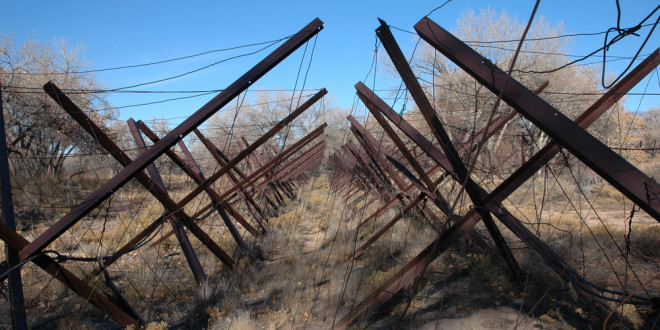(18 May 2015) Sudanese authorities should immediately release and guarantee the safety of human rights defender Mohamed Musa Mohamed Dawud who was reportedly detained by members of the Sudanese Armed Forces (SAF) in late April and transferred under armed guard to Kadugli hospital in South Kordofan with gunshot wounds.
Mohamad Dawud is a known human rights defender who is thought to have been injured and detained during a ground attack by the SAF on the civilian village of Belanga in West Kadugli County, South Kordofan. Conflicting reports suggest he was detained sometime between 23 and 30 April and taken to Kadugli hospital under armed guard, having sustained gunshot wounds. His current whereabouts have not been confirmed.
The African Centre for Justice and Peace Studies (ACJPS) calls on the Government of Sudan to immediately confirm the whereabouts of Mohamed Musa Mohamed Dawud and release him unconditionally in the absence of valid legal charges that are consistent with international law. His status as a civilian and human rights defender should be guaranteed. In particular, he should be granted immediate access to his family and a lawyer and his procedural rights, as provided under the International Covenant on Civil and Political Rights (ICCPR) to which Sudan is a state party, should be protected at all times.
Sudanese government forces have persistently dropped bombs and launched ground attacks on civilian areas throughout South Kordofan since the outbreak of conflict in 2011. The Sudanese government has failed to take all feasible precautions to avoid harm to civilians, or to distinguish between combatants and civilians.
International law strictly prohibits the targeting of civilians and indiscriminate attacks on civilian areas. Immediate steps should be taken to guarantee the protection of civilians and the vital role of human rights defenders in both conflict and non-conflict settings. Reports of the armed attack on the civilian village of Belanga in late April by government forces, and the injuries sustained by human rights defender Mohamed Dawud, should be investigated immediately.
The Sudanese authorities should facilitate unhindered access for humanitarian agencies, human rights monitors, and non-governmental organisations (NGOs) to all parts of South Kordofan and Blue Nile.
Background
Armed conflict between the Government of Sudan and the Sudan Peoples’ Liberation Army-North (SPLA-N) broke out in July 2011 in South Kordofan, spreading to Blue Nile in September the same year and then to North Kordofan in April 2013.
Gross violations of international human rights and humanitarian law continue to be committed in those areas, including direct and indiscriminate attacks on civilians and civilian property, arbitrary detentions and torture. Indiscriminate aerial bombardment by the Sudanese Armed Forces has killed and maimed hundreds of civilians, destroyed schools, clinics, and other civilian buildings, and instilled fear in the civilian population.
There is severely limited information available on the situation faced by civilians in Sudan’s conflict zones. Access for humanitarian aid agencies and international non-governmental organizations is severely restricted in Government-controlled areas of South Kordofan and Blue Nile states and aid agencies have been banned from accessing SPLM-N controlled areas.
The network of journalists, Nuba Reports, reported that between December of 2014 and February of 2015, at least 970 bombs were been dropped on civilian targets in the Nuba Mountains, a drastic increase from the 230 that were dropped over the same period last year. On 20 January 2015 a Sudanese Air Force fighter jet bombed a hospital run by the international medical humanitarian organization Doctors Without Borders/Médecins Sans Frontières (MSF) in the Nuba Mountains village of Frandala, forcing the suspension of medical activities. The same facility had been bombed on 16 June 2014, killing one patient and a new born baby and destroying the emergency room. Human Rights Watch reported that in May and June 2014, several hospitals and other humanitarian facilities were bombed within a short time period, preceded in three cases by drones flying over the facilities, suggesting deliberate targeting.
Meanwhile, throughout the country, civil society and the media have been subjected to repeated crackdowns. International journalists are routinely denied visas to travel to the country and local journalists face daily harassment and restrictions. Press coverage of human rights violations, in particular those perpetrated in the context of Sudan’s armed conflicts, is suppressed by members of Sudan’s National Intelligence and Security Services who routinely make threatening phone calls to journalists and visit their offices, confiscating print runs. On 16 February 2015, the entire print runs of 14 Khartoum newspapers were confiscated by the NISS before morning distribution without reasons being given.
NGOs, particularly those working in defence of human rights, have been raided and forcibly closed, with property and documentation confiscated. In Khartoum, human rights defender Adil Bakheit is at risk of a politically motivated trial on baseless charges, including under the category of ‘crimes against the state’ that carry the death penalty, after his laptop was confiscated during an armed raid on the Khartoum-based TRACKS for Training and Human Development. He was detained on 16 April and released on bail on 3 May after 17 days in police custody.
Contact:
Katherine Perks (English), +256 775072136 / info@acjps.org.
Mohamed Badawi (Arabic), +256 783 693 689 / info@acjps.org.
This post is also available in: Arabic
 African Centre for Justice and Peace Studies ACJPS | المركز الافريقي لدراسات العدالة و السلام
African Centre for Justice and Peace Studies ACJPS | المركز الافريقي لدراسات العدالة و السلام




